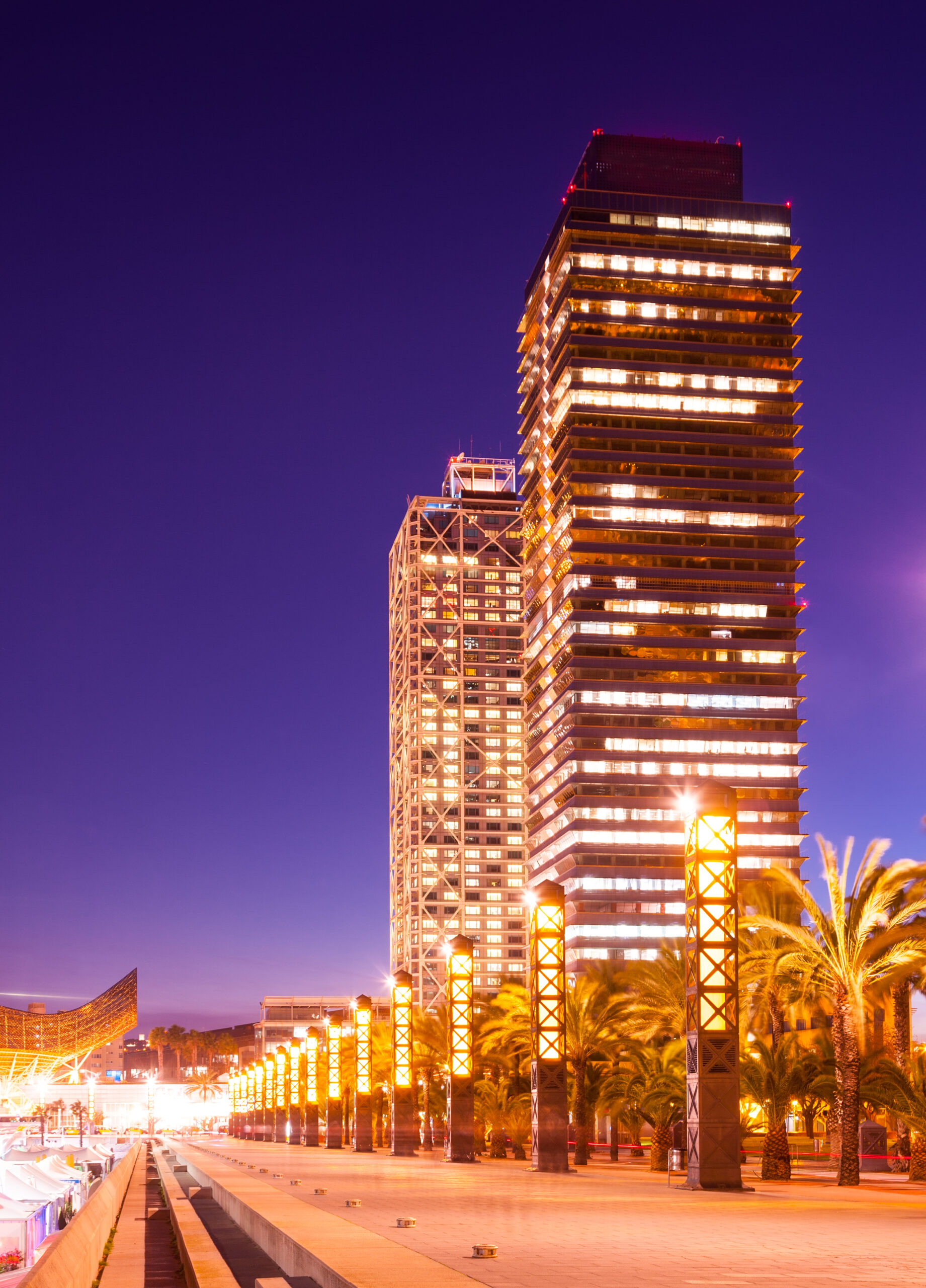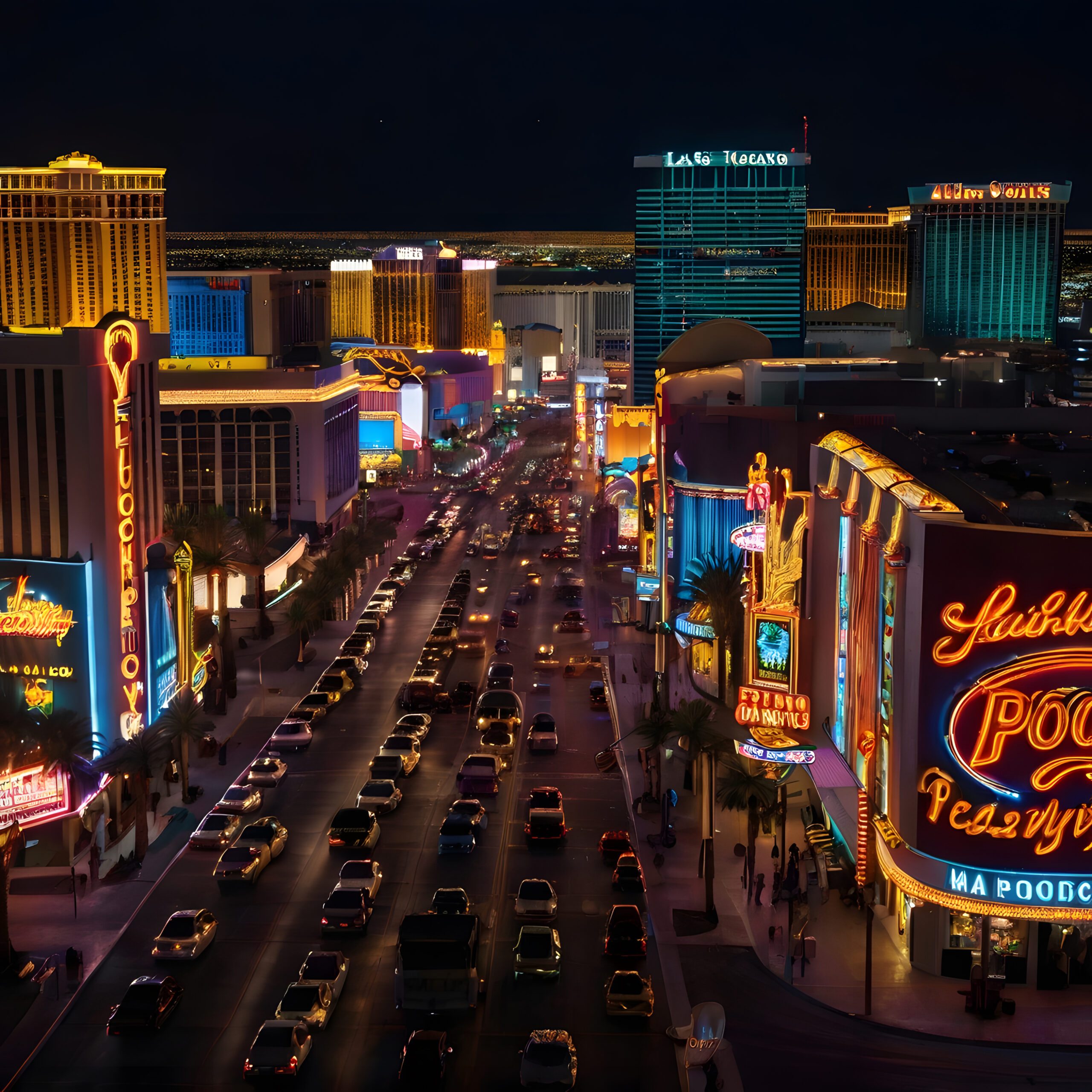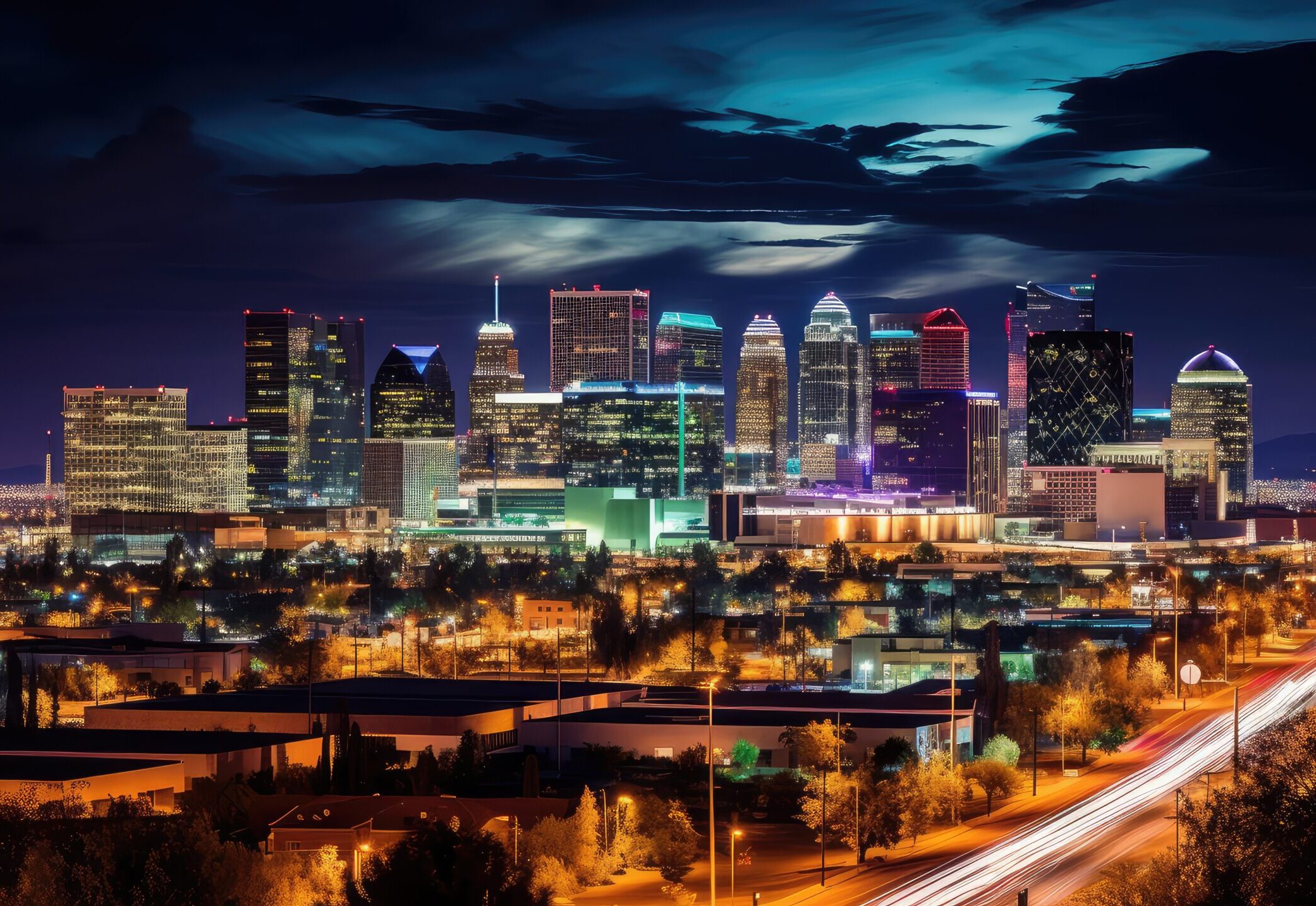Las Vegas, NV
Las Vegas, commonly known as Vegas, is the most populous city in Nevada and the seat of Clark County. With a 2020 population of 641,903, it ranks as the 24th largest city in the United States. Its metropolitan area, home to about 2.4 million residents, is the 29th largest in the country. Las Vegas is internationally recognized as a resort city known for gambling, nightlife, high-end shopping, fine dining, and entertainment. The majority of its most famous attractions are concentrated either downtown or along the Las Vegas Strip, which technically lies outside city limits in the communities of Paradise and Winchester. Las Vegas serves as the commercial, financial, and cultural heart of Nevada.
History and Development
The name “Las Vegas,” meaning “the meadows” in Spanish, dates back to 1829 when Mexican explorer Antonio Armijo passed through the area and noted its springs and lush grasses. This land had long been the seasonal home of the Southern Paiute people. The city’s modern history began in 1905 with a land auction near the Union Pacific Railroad. Las Vegas was officially incorporated in 1911 and quickly became a key stop between Salt Lake City and Los Angeles. In 1931, the legalization of casino gambling and the easing of divorce laws attracted newcomers. The same year, construction began on Hoover Dam, which helped the city avoid economic devastation during the Great Depression and brought thousands of workers to the area.
During the 1940s and 50s, lavish casino-hotels and star-studded entertainment acts transformed Las Vegas into a symbol of glamour. In 1951, nuclear testing began at the Nevada Test Site northwest of the city, with visible mushroom clouds becoming part of the local skyline until 1963. The city’s first racially integrated casino-hotel, the Moulin Rouge, opened in 1955. By the 1960s, businessmen like Howard Hughes were investing heavily in the area, and gambling began to be referred to more professionally as “gaming.”

Downtown Las Vegas was reenergized in 1995 with the Fremont Street Experience, a five-block-long LED canopy that hosts light shows every evening. In 2012, Las Vegas underwent another significant downtown revitalization with projects like the Smith Center, the Neon Museum, and the Zappos headquarters, funded largely by a $350 million investment from CEO Tony Hsieh.

Geography and Urban Layout
Las Vegas is located in a desert basin within the Mojave Desert and is encircled by mountain ranges that sometimes rise above 10,000 feet. Although the city sits at an elevation of about 2,030 feet, its geography includes arid terrain, rocky hills, and drought-resistant vegetation. Despite its desert setting, the city is dotted with irrigated lawns and trees, though efforts have been made in recent years to promote xeriscaping and more sustainable landscaping. Flash flooding is a seasonal concern but has been mitigated by modern drainage systems. The city spans 135.86 square miles, nearly all of which is land. Given Nevada’s status as one of the most seismically active states, the U.S. Geological Survey estimates a 10 to 20 percent chance of a magnitude 6.0 or greater earthquake occurring within 50 kilometers of the city over the next 50 years.
Climate
Las Vegas has a subtropical hot desert climate characterized by long, intensely hot summers and short, mild winters. The city averages 310 sunny days a year and sees bright sunshine for roughly 86 percent of daylight hours. Rainfall is scarce, averaging just over four inches annually, spread across approximately 26 days. July is typically the hottest month, with average highs of 104.5 degrees Fahrenheit. On average, 137 days each year reach or exceed 90 degrees, with 78 days over 100 and 10 over 110. Nighttime lows in summer often stay above 80 degrees and occasionally above 85. The city does experience some relief during monsoon season from July through August, when brief thunderstorms may bring cloud cover and intense but short-lived rain.
Winters are mild with daytime highs averaging in the mid-50s to low 60s and nighttime lows in the 40s. Though rare, freezing temperatures occur around 10 nights per winter. Snow is extremely uncommon in the city but does occasionally accumulate, as seen in 2008 and 2019. July 2024 became the hottest month ever recorded in Las Vegas, with an average daily high of 111.5 degrees and a record monthly mean temperature of 99.9 degrees. To combat water concerns exacerbated by prolonged droughts, the city has cut per capita water consumption from over 300 gallons per day in 2003 to around 205 by 2015.
Demographics
As of the 2020 Census, Las Vegas had 644,883 residents living in 244,429 households, with an average household size of 2.63 people. Approximately 55.7 percent of housing units were owner-occupied. The city’s racial composition was 49.2 percent white, 11.9 percent Black or African American, 6.9 percent Asian, and 34.1 percent Hispanic or Latino of any race. Non-Hispanic whites made up 40.8 percent of the population. About 5.8 percent of residents were under the age of five, 22.8 percent were under 18, and 15.6 percent were 65 or older. Women accounted for exactly half of the population.
From 2019 to 2023, the median household income was $70,723, while per capita income was $38,421. Roughly 14.2 percent of the population lived below the poverty line. Educational attainment showed that 85.8 percent of adults over 25 had at least a high school diploma, and 27.3 percent held a bachelor’s degree or higher. About 33 percent of residents spoke a language other than English at home, and 20.9 percent were foreign-born. The city has a significant Filipino community, with over 31,000 living within the city and more than 160,000 in the metro area. Las Vegas also has a large population of Native Hawaiians, leading some to refer to it as the “ninth island of Hawaii.”
Economy
The Las Vegas economy revolves around tourism, gaming, and conventions, which in turn support retail, food, and hospitality sectors. The Las Vegas Strip, though technically outside city limits, is the epicenter of the city’s resort and entertainment industry. Downtown Las Vegas is also home to several historic casinos such as the Golden Nugget, Binion’s Gambling Hall, and the California Hotel. Newer additions like Circa Resort & Casino, which opened in 2020, have contributed to a downtown revival.
Efforts to diversify the economy have attracted tech, health, and retail businesses. Symphony Park is one such mixed-use development that houses the Smith Center for the Performing Arts, Discovery Children’s Museum, and Cleveland Clinic’s Lou Ruvo Center for Brain Health. Las Vegas is also home to the World Market Center, a major venue for the furniture industry, and the Las Vegas North Premium Outlets with over 175 stores. The relocation of Zappos.com’s headquarters to the old City Hall building has helped establish the downtown area as a startup and creative business hub. Additionally, the cannabis industry has found success in the city, with Planet 13 operating the world’s largest dispensary.


Arts and Culture
Las Vegas has an active arts community centered around the Downtown Arts District and the 18b neighborhood. The city is home to museums like the Neon Museum, the Mob Museum, the Natural History Museum, and the Nevada State Museum. Cultural events include the Las Vegas Film Festival and First Friday, a monthly art and music celebration in the downtown area. The Smith Center hosts Broadway shows and classical performances, while Las Vegas Academy is a nationally recognized performing arts magnet school. As the city with the world’s highest number of land-based casinos and more AAA Five Diamond hotels than any other, Las Vegas continues to reinforce its image as the “Entertainment Capital of the World.”
Sports and Recreation
Las Vegas now hosts three major league sports teams. The Vegas Golden Knights joined the NHL in 2017 and quickly won a Stanley Cup in 2023. The Las Vegas Raiders of the NFL relocated from Oakland in 2020 and play at Allegiant Stadium. The Las Vegas Aces, who play in the WNBA, have won two national championships. Major League Baseball’s Oakland Athletics are expected to relocate to Las Vegas by 2028. Minor league teams include the Las Vegas Aviators in baseball, the Las Vegas Lights FC in soccer, and the Henderson Silver Knights in hockey. Combat sports also have a strong presence in Las Vegas, which is often considered the fight capital of the world. The UFC is headquartered in the city and regularly hosts events at T-Mobile Arena and its own UFC Apex facility.
The city also features Las Vegas Motor Speedway, which hosts two major NASCAR Cup Series races annually. Public recreation is well supported with 78 parks, four golf courses, 11 recreational centers, and numerous fields, skate parks, and swimming pools managed by the parks and recreation department.
Las Vegas continues to evolve as both a premier global tourist destination and a city with growing diversity in business, culture, and community life.
Dental Equipment Repair in
Las Vegas, NV
Dental offices across Las Vegas count on Tekagogo for fast, dependable dental equipment repair. Whether it’s your sterilizer, compressor, vacuum, or suction system, our Teks arrive ready to fix what’s down and document it all in your dashboard. Favorite your go-to Tek and stay organized without a single phone call.
Preventative Equipment Maintenance in Las Vegas, NV
Tekagogo’s Preventive Maintenance Program helps Las Vegas practices reduce downtime and extend the life of their equipment. With regularly scheduled visits and the same technician each time, your compressor, vacuum, statim, and amalgam separator stay on track. Less stress, more uptime, all logged in the platform.
